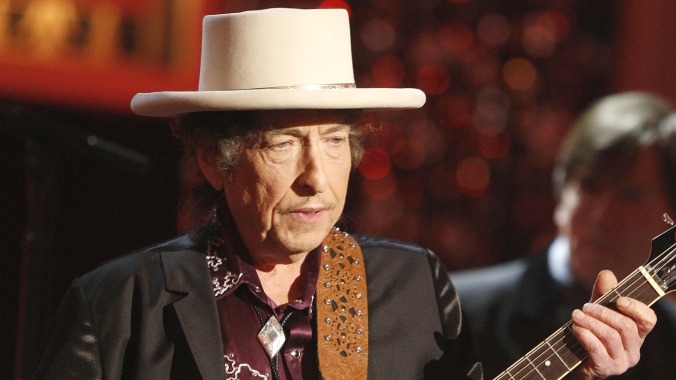Bob Dylan calls machine-printed "signatures" an "error in judgment"
Bob Dylan attributes his controversial use of digital signatures on a series of autographed books to a case of vertigo that began in 2019

Despite a stalwart commitment to touring, public comments from Bob Dylan have grown scarce in recent years. But controversy over the musician’s use of digitally replicated “signatures” prompted one of Dylan’s rare statements, apologizing for what he calls an “error in judgment.”
The issue at hand lies with limited-edition and (purportedly) autographed copies of Dylan’s book The Philosophy Of Modern Song, which sold for $600 apiece. As some not-so-happy customers pointed out, the signatures clearly appeared machine-printed when compared with other, authentic examples of Dylan’s signature.
In a statement shared to Facebook on Saturday, Dylan attributes his decision to use an autopen to vertigo, which first became a struggle in 2019 and followed him through the pandemic. An autopen replicates a person’s signature by storing a digital copy of their handwriting and recreating it through a robot arm (meaning the signatory doesn’t need to be in the room to put pen to paper.)
“I’ve hand-signed each and every art print over the years, and there’s never been a problem,” Dylan writes. “However, in 2019 I had a bad case of vertigo and it continued into the pandemic years. It takes a crew of five working in close quarters with me to help enable these signing sessions, and we could not find a safe and workable way to complete what I needed to do while the virus was raging. So, during the pandemic, it was impossible to sign anything and the vertigo didn’t help.”
He continues: “With contractual deadlines looming, the idea of using an auto-pen was suggested to me, along with the assurance that this kind of thing is done ‘all the time’ in the art and literary worlds.” According to Dylan, he plans to work with his publisher, Simon & Schuster, and his gallery partners to “rectify” the situation.
Simon & Schuster initially denied refund requests from disgruntled fans, reassuring them that the autographs were substantiated with a “letter of authenticity.” The publishing house has since doubled back, admitting the signature was a “penned replica” of Dylan’s and promising full refunds to all 900 people who purchased one of the books.
Dylan’s admission also called into question some pieces of his recently signed artwork—pieces that can sell for as high as $15,000, per BBC. Castle Fine Art, a British gallery that carries Dylan’s signed art, shared in a statement via Variety that they were “entirely unaware” that autopen had been used on the prints. The gallery offered full refunds to any affected clientele, and if any buyers choose to keep their paintings, “they will be asked to exchange the current certificate of authenticity for one reflecting the autopen signature.”
Autopen allegations haven’t solely plagued Dylan; Van Morrison was recently accused of using the device, although his management denied it. Sinead O’Connor also admitted last year to using a signature stamp on her memoir Rememberings. “I was not in a position to hand write my name 10,000 times, which is how many I was asked to sign,” she tweeted at the time, per BBC. “My son was unwell as was I.”